College of Human Sciences
Ethical and theological issues surrounding gender equity viewed through an African lens
Hosted by Unisa’s Research Institute for Theology and Religion (RITR), in collaboration with the Circle of Concerned African Women Theologians and the Humboldt Research Hub in Africa on Women and Pandemics, a recent conference focused on the intensified hardships of African women. Held from 24 to 26 July 2022, the conference was themed Constructions of Earth and Gender: Theological and Ethical Reflections on Contemporary Environmental Crises.
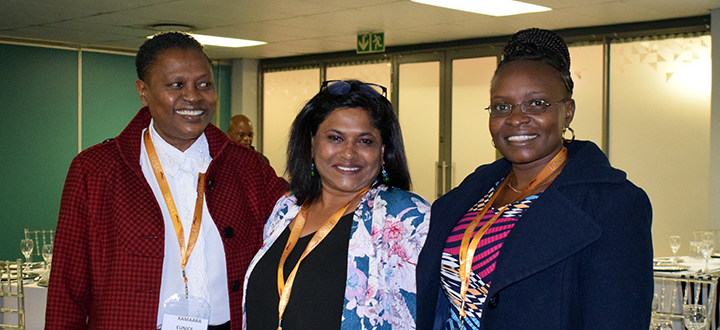
From left: Prof Eunice Kamaara (Moi University, Kenya), Dr Linda Naicker (Unisa) and Dr Kuthini Musili (University of Nairobi)
Expertise across borders and disciplines
Researchers from across the continent presented papers at the conference. On days two and three of the gathering, there were four sessions where scholars had the opportunity to present their work and receive constructive feedback and critique.
Many academic giants attended, among them Unisa’s Professor of Health Studies and Head of Research and Graduate Studies, Azwihangwisi Helen Mavhandu-Mudzusi; Prof Victor Molobi, Chair of the Research Institute for Theology and Religion; Madipoane Masenya, Professor of Biblical Studies; Olehile Buffel, Professor of Practical Theology; Elijah Baloyi, Professor of Practical Theology; Prof Itumeleng Mothoagae, Institute for Gender Studies; Prof Musa Wenkosi Dube, Continental Coordinator of the Circle of Concerned African Women Theologians; and Prof Christina Landman, Research Director: Research Institute for Theology and Religion.
A gala dinner was held on 25 July and was a grand event, which gave the scholars an opportunity to dress up in African splendour and enjoy a fun-filled evening of dance, poetry and fellowship.
Dialogue between gender equity, faith and SDGs
The conference formed part of a collaborative project between the RITR, the Circle of Concerned Africa Women Theologians and the Humboldt Research Hub in Africa on Women and Pandemics.
Guided by the principles of justice and Ubuntu, the project is an integration of gender and religion/theology as a basis for understanding how the multiple and intersecting forms of discrimination, oppression and marginalisation have an impact on gender equity and are a barrier to achieving the United Nations Sustainable Development Goals (SDGs).
The project brings gender equity and faith into dialogue with the sustainable development goals by addressing issues inclusive of race, ethnicity, economics, health, environment and pandemics. The subjugation of women and the Earth through patriarchy and anthropocentricism undergirds the Christian biblical understanding of sin and salvation. We therefore ask, what are the gender- and Earth-friendly aspects of biblical interpretation? How can sin be renamed and reimagined theologically considering liberation from the perspective of the whole of creation?
The two principal coordinators of the conference were Unisa’s Dr Linda Naicker and Dr Sophia Chirongoma, Research Coordinator for the Circle of Concerned African Women Theologians. During the conference, we had an opportunity to sit down with Dr Naicker and gain her feedback.
What is the Research Institute for Theology and Religion?
The institute was founded in 1975 to develop and manage theological and religious research and its intersections with society. Its focus is on cutting-edge research related to the African context. The institute is concerned with socially engaged scholarships, collaborations and networks that foreground issues of justice and Ubuntu. It is an interdisciplinary entity that fosters both national and international collaborations for the purpose of academic research and scholar/activist engagements.
What is the Circle of Concerned African Women Theologians?
The Circle of Concerned African Women Theologians is an academic association formed in 1989 by Ghanaian scholar, activist, church leader and academic, Mercy Amba Oduyoye. The Circle of Concerned African Women Theologians is a pan-African ecumenical organisation supporting scholarly research of African women theologians. The organisation serves to mentor the next generation of African women theologians throughout their academic careers in order to counter the dearth of academic theological literature by African women. It has chapters in more than a dozen countries across the African continent, as well as diaspora chapters in Europe and North America.
Describe the Humboldt Research Hub in Africa on Women and Pandemics.
The Humboldt Research Hub in Africa, focusing on African women, religion and pandemics, seeks to raise awareness of the role of women in religion in Africa in facing pandemics. It reviews the contribution of religious women to the continent’s response to pandemics, investigating the extent to which religion acts as a resource in the face of emergencies such as HIV and AIDS, Ebola and Covid-19. The organisation analyses activities African religious women have undertaken to respond to pandemics in the past and reflects on how these experiences could be tapped into to provide effective responses to future pandemics. It also assesses the strengths and challenges characterising African religious women’s responses to pandemics and seeks partnership and collaboration with like-minded research institutes and researchers in Africa.
How many countries participated in the conference?
Thirteen countries: South Africa, Malawi, Swaziland, Lesotho, Zambia, the Democratic Republic of the Congo, Cameroon, Swaziland, Botswana, Zimbabwe, Ghana, the United States of America and Germany.
What was the purpose of the conference?
In the interests of remaining on the cutting-edge of research and innovation, the RITR at Unisa seeks to strengthen its network of scholars and activists in a variety of fields of study in order to exchange knowledge and ideas, research data, analytical ideas and other insights and strategies. This is in order to advance the collaborative work and presence of the RITR as well as to identify and establish a collaborative network of institutional and organisational partners, scholars and activists; and to advance the work of justice and ubuntu of the RITR. For this particular project, the focus was on gender and religion – more specifically, the collaboration between women academics in Africa. In 2021, the RITR embarked on a collaborative project with the Circle of Concerned African Women Theologians. We began recruiting research associates for the RITR from within the Circle. The conference served not only to showcase the RITR and wider Unisa, but also to create space and opportunity for research associates and prospective research associates to increase their publication output on behalf of the RITR.
Was the purpose met?
Yes. The conference was attended by a large consortium of scholars from across Africa. The quality of the presentations was outstanding and the level of engagement during every session was phenomenal. To date, we foresee a significant number of publications. The participants are at this point already submitting their articles to the HTS Journal with whom we have negotiated to publish special volumes.
What life lessons have you learned during your academic journey?
One of the most important life lessons I have learnt is that hard work and sacrifice pay off in the end. As a socially engaged scholar/activist, my work is grounded in the African context and the social realities that shape our world. It is this reality that informs my scholarship and activism.
What are your research interests?
My research interests and publications focus on the intersections of religion, race, class and gender.
Who were the conference coordinators?
Dr Linda Naicker (Unisa) and Dr Sophia Chirongoma under the leadership and guidance of Prof Victor Molobi (RITR) and Prof Musa Wenkosi Dube, Circle of Concerned African Women Theologians. Dr Chirongoma is a senior lecturer in the Department of Religious Studies at Midlands State University, Zimbabwe. She is also an academic associate/research fellow at the RITR in the College of Human Sciences at Unisa. Her research interests and publications focus on the interface between culture, ecology, religion, health and gender. Dr Chirongoma is also the Research Coordinator, Southern Africa, for the Circle of Concerned African Women Theologians.
* By IHlubi Veli Mabona, Marketing Assistant, College of Human Sciences
Publish date: 2022-09-02 00:00:00.0


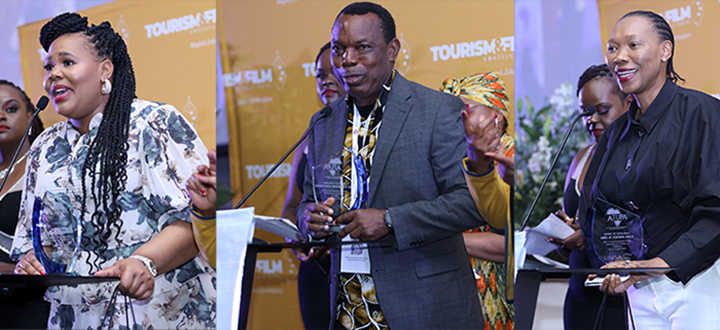 Unisa and ATUPA recognise researchers for ingenuity and innovation
Unisa and ATUPA recognise researchers for ingenuity and innovation
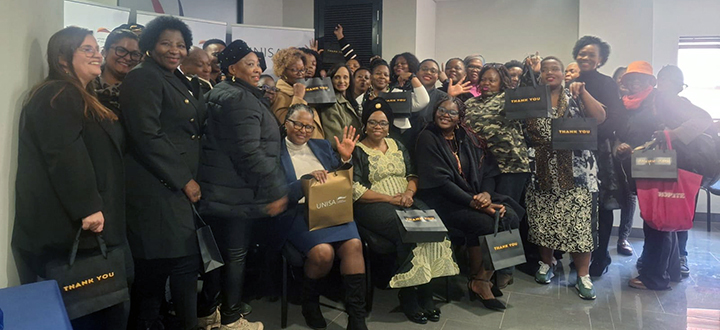 Recognising the unceasing resilience of women
Recognising the unceasing resilience of women
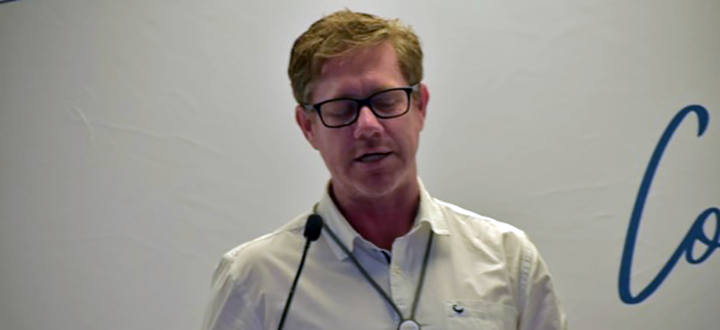 Unisa and SHECASA promote institutional health and safety
Unisa and SHECASA promote institutional health and safety
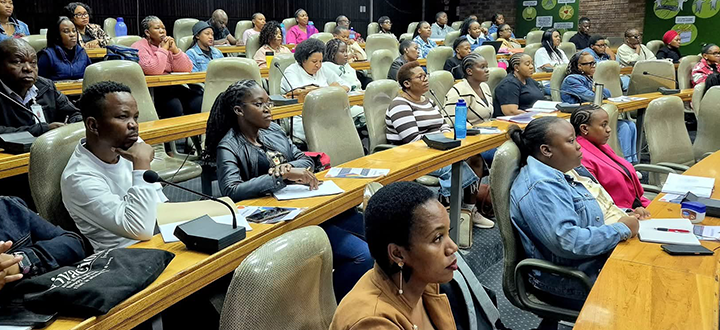 Effectual partnership to advance public health knowledge
Effectual partnership to advance public health knowledge
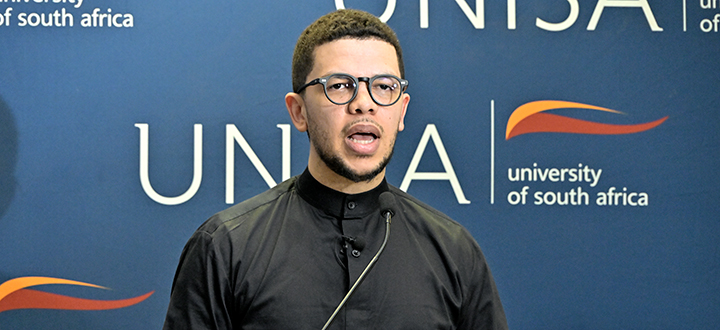 OR Tambo remembered as a radical democracy builder
OR Tambo remembered as a radical democracy builder